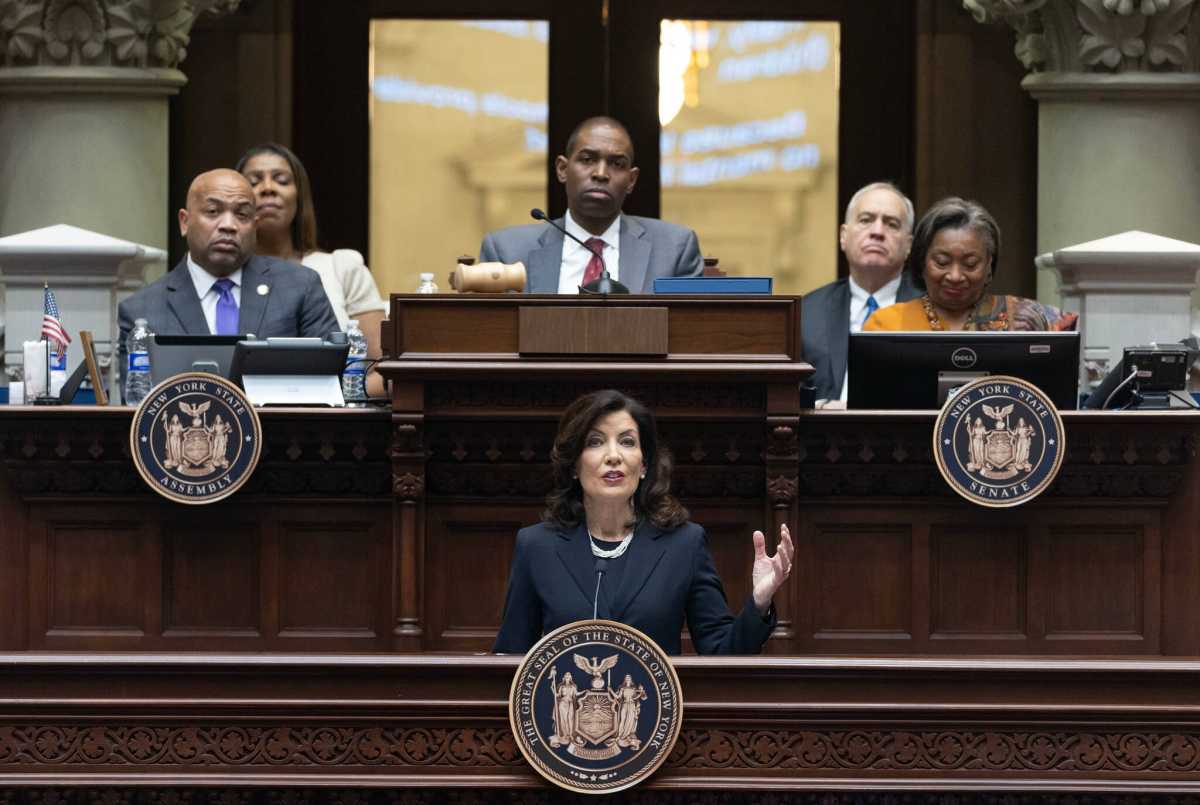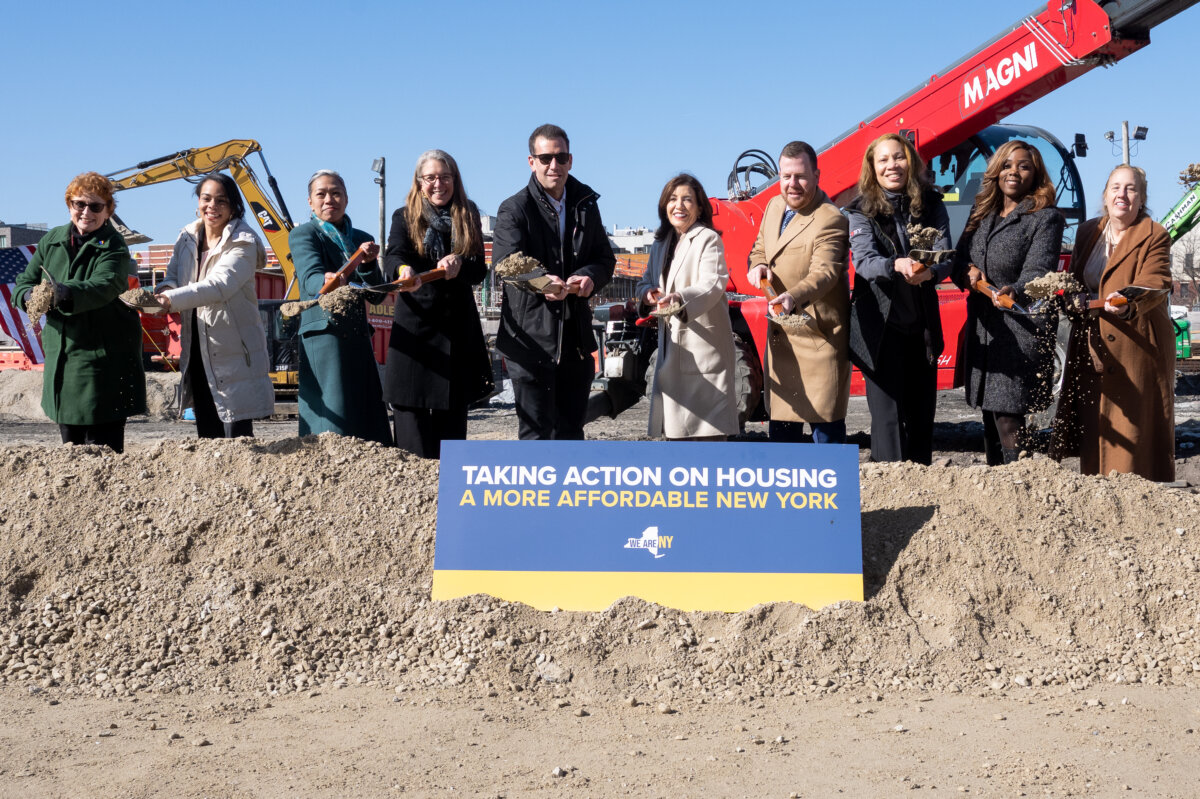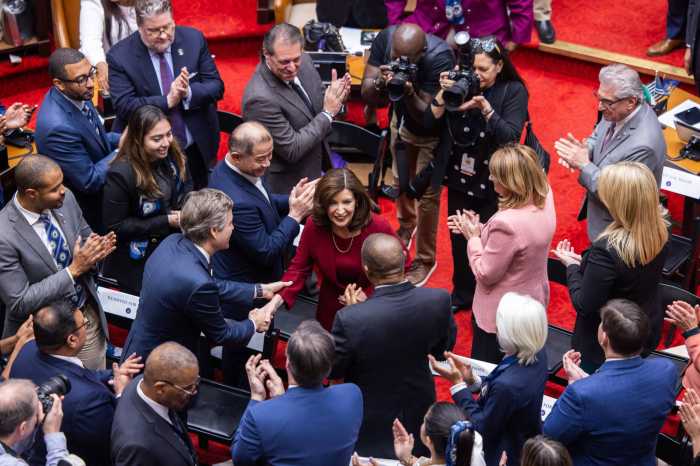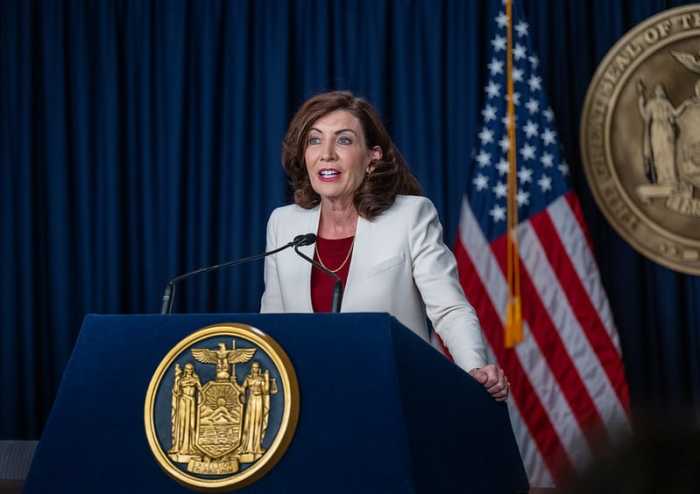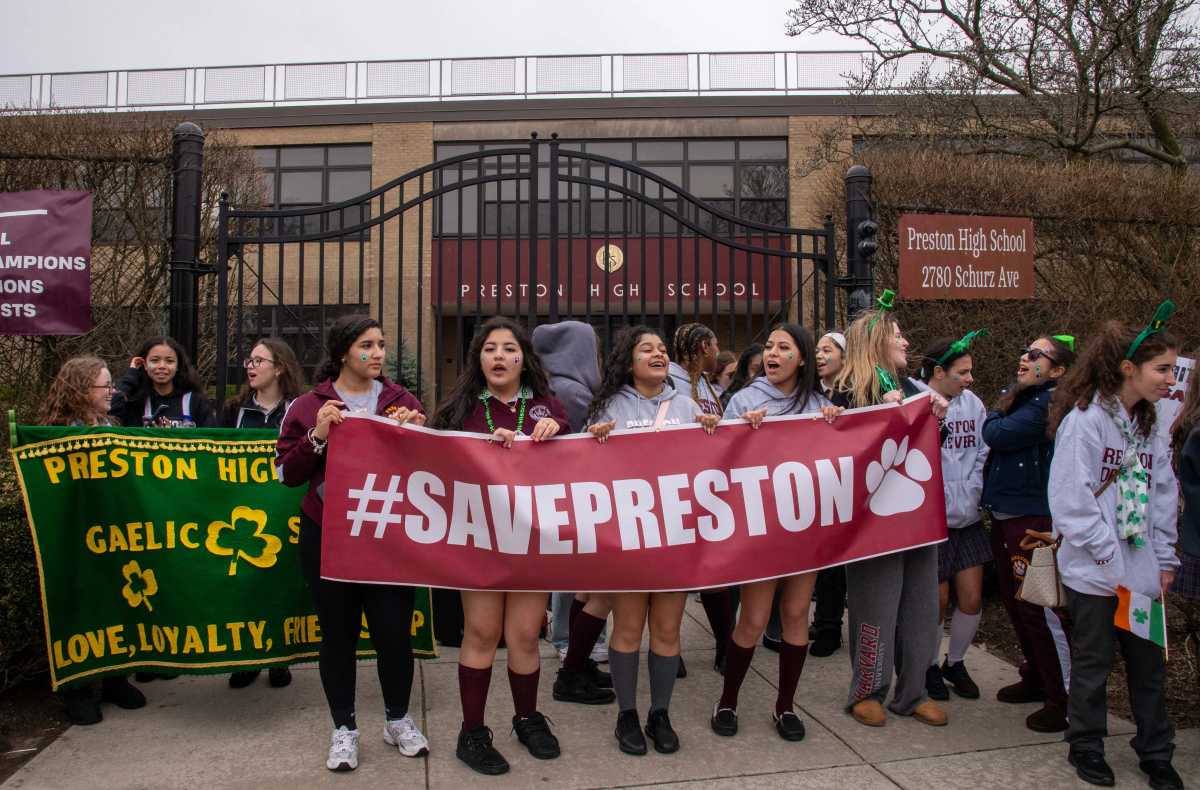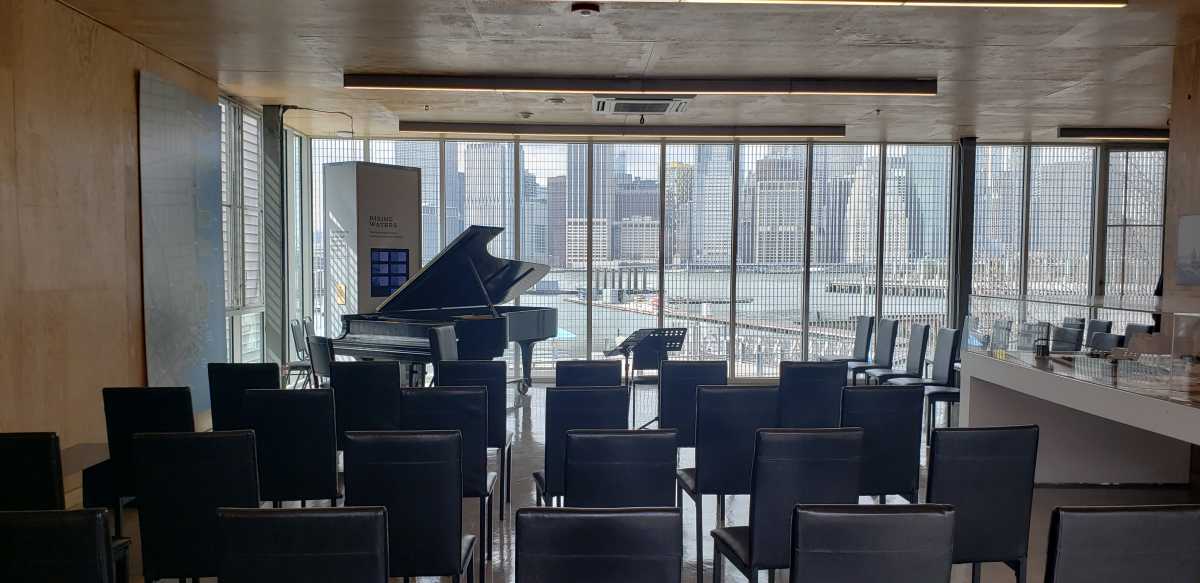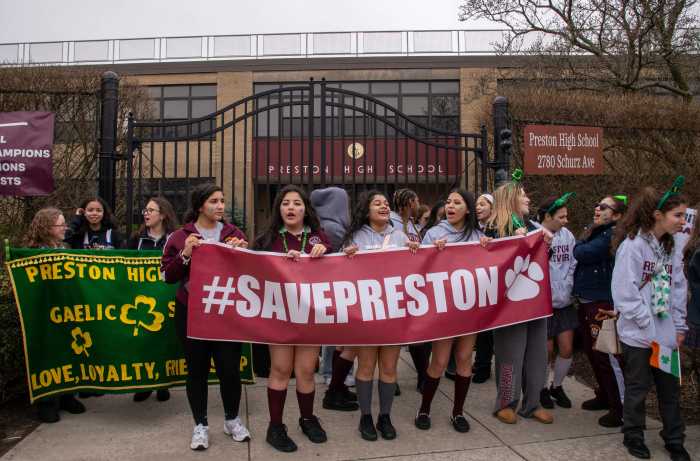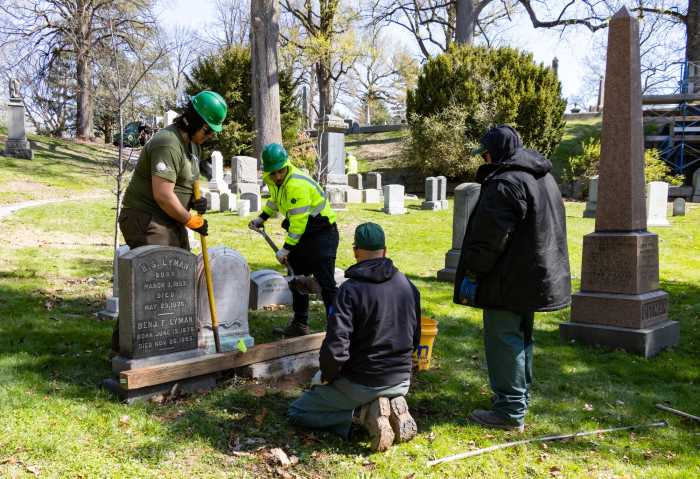Any hope of substantive housing policy coming out of Albany this year is all but dead, after Assembly Speaker Carl Heastie and Senate Majority Leader Andrea Stewart-Cousins announced that they had reached a deal themselves but couldn’t get Governor Kathy Hochul on board.
Heastie and Stewart-Cousins, who each control Democratic supermajorities in their respective chambers, said on Thursday — officially the final day of the state legislative session — that they had reached a consensus of sorts on a broad housing program that would enact, among other things:
- Good Cause Eviction, which would limit rent increases statewide and require landlords provide legal justifications before evicting tenants.
- Housing Access Voucher Program, a new rental subsidy for homeless New Yorkers.
- A plan enabling the conversion of underutilized commercial property to residential use.
- A program providing legal representation in Housing Court during eviction proceedings.
- An extension of the 421-A tax break for real estate developers.
The legislative leaders say they could not reach an agreement with the governor on enacting new housing policy, and implied Hochul had put too much focus on spurring housing construction at the expense of new protections for tenants. Previously, housing policy was a major plank of this year’s state budget negotiations, but a budget was ultimately passed without any new substantive housing policy.
“Unfortunately, it was clear that we could not come to an agreement with the governor on this plan. It takes all three parties — the Senate, the Assembly and the governor — in order to enact legislation into law,” Heastie and Stewart-Cousins said in a joint statement on Thursday. “There is no debate — New York is experiencing a housing crisis. All three chambers must immediately redouble our efforts and come up with a plan that the governor will sign into law. This plan must prioritize not only the construction of new units of affordable housing but also robust protections for tenants including good cause eviction.”
In turn, the governor’s office said the legislative leaders were blaming Hochul for their own “failure to act.”
Wood also said that the governor’s office would pursue executive action in the coming weeks to address the housing crisis unilaterally, though the executive chamber did not provide specifics.
In her executive budget, Hochul outlined a program called the “Housing Compact” that she said would spur the creation of 800,000 new units of housing statewide, largely through municipal growth targets and a mechanism for overriding local zoning rules if localities failed to meet the mark.
The Compact did not make it into the final budget as both chambers expressed their opposition, with particular resistance from suburban lawmakers. Hochul, on the other hand, had opposed tenant protections like good cause eviction that were tacitly supported by the Legislature.
Advocates quickly expressed scorn at the legislative leaders, as another legislative session appears on the verge of closure without policies to address the state’s dire housing affordability crisis.
“Anything short of immediate action on this package would amount to a colossal failure of leadership during an unprecedented time of suffering for millions of tenants from all corners of New York State,” wrote the Housing Justice for All coalition, which has lobbied for good cause protections. “Ending the legislative session without having passed any meaningful housing initiatives is a reality that no member of the public will accept.”
Rents remain on a considerable upward trajectory: citywide median rents stand at $4,250 for a one-bedroom apartment, 8% higher than a year ago, according to apartment listing service RentHop.
More than a third of the city’s tenants are paying at least half of their income on rent, which the city classifies as “severely rent-burdened,” according to the Rent Guidelines Board’s 2023 Income and Affordability Survey. The city is sheltering up to 80,000 homeless people per night, an unprecedented number in city history as migrants continue to come to the five boroughs. Over 50,000 evictions have been filed in New York City so far this year.
The suburban counties around New York City have built new housing at a slower rate than almost any other place in the country in recent years; between 2000 and 2019, the downstate region created 516,000 more jobs than homes, according to the governor’s office, driving up housing prices and forcing many to move themselves and their tax dollars to more affordable neighboring states.
Housing Justice for All expressed skepticism of the statement by Heastie and Stewart-Cousins, noting they can still bring the legislation to a vote and, if passed, place Hochul in the position of vetoing it.
“Both the Senate and the Assembly have the votes to pass a comprehensive housing package that would include ‘Good Cause’ and the Housing Access Voucher Program,” the coalition said. “The time for leadership is now, as millions of lives hang in the balance. Governor Hochul would not veto a wildly popular omnibus bill in the midst of a historic housing crisis. We urge the state legislature to call her bluff.”
A coalition of landlord groups called Homeowners for an Affordable New York, on the other hand, cheered the demise of Good Cause, which it spent heavily on lobbying to defeat.
“The self-described Socialists pushing Good Cause Eviction failed to understand that attempting to craft housing policy through bullying, intimidation, and harassment was always a losing proposition,” the group said. “It is now clear that a majority of lawmakers understand that Good Cause Eviction would increase homelessness, devastate New York’s future housing supply, and wreck local budgets. Thankfully, they and the Governor held their ground, and common sense prevailed.”
The detractors of Good Cause say that it would restrict how much rent landlords can charge, and argue that it would cut into their returns and make it difficult to cover costs.
Though the legislative session is formally set to end Thursday, spokespersons for both chambers confirmed they will remain in Albany at least through Friday as a number of other legislative items remain on the table.
The governor and legislature reached a deal on the “Clean Slate” act which would seal most criminal records eight years after sentencing or the end of a prison term, and are likely to vote it through.
The Senate voted on party lines to expand early voting through mail, and the Assembly is set to take up the measure before leaving Albany. Both houses will also vote on revisions to the state’s public campaign financing law that good government watchdogs say would dilute the program before it is set to begin in the 2024 election.
Meanwhile, the bill allowing New York City to lower its speed limit to 20 miles per hour, also known as Sammy’s Law, passed the Senate this week but will almost certainly not be taken up by the Assembly even as the mothers of vehicle collision victims embark on a hunger strike.
Read more: NYC’s Big Apple Awards Honor Excellence of City’s Teachers



